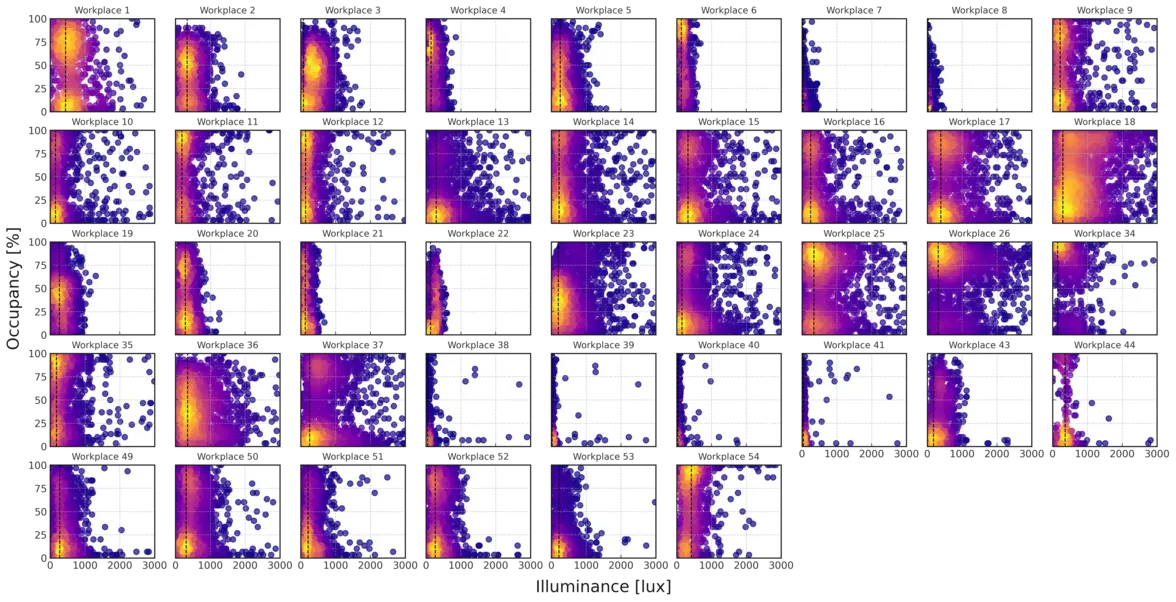
The Impact of Daylight on Occupancy Behavior in Offices - A Case Study of the DesignFunktion Office in Munich
Arvand Vaghari Fard
Sommersemester 2021
Daylighting is a very important aspect of architecture often neglected in the modern era, especially in the design of office buildings. Even today, most architects design based on their subjective point of view and accumulative experience rather than the objective needs of the users, documented based on empirical research. This might lead to a suboptimal user experience. Additionally, appropriate use of daylight in buildings contributes to achieving the ever-important goals of energy efficiency and sustainability.
The goal of this Master’s thesis is to study whether a correlation exists between daylight and the occupancy values of workplaces in office buildings in order to facilitate decisions regarding daylight in the design of office environments in such a way, that the office occupants are most satisfied, while the need for lighting is maximally covered by daylight rather than artificial light.

